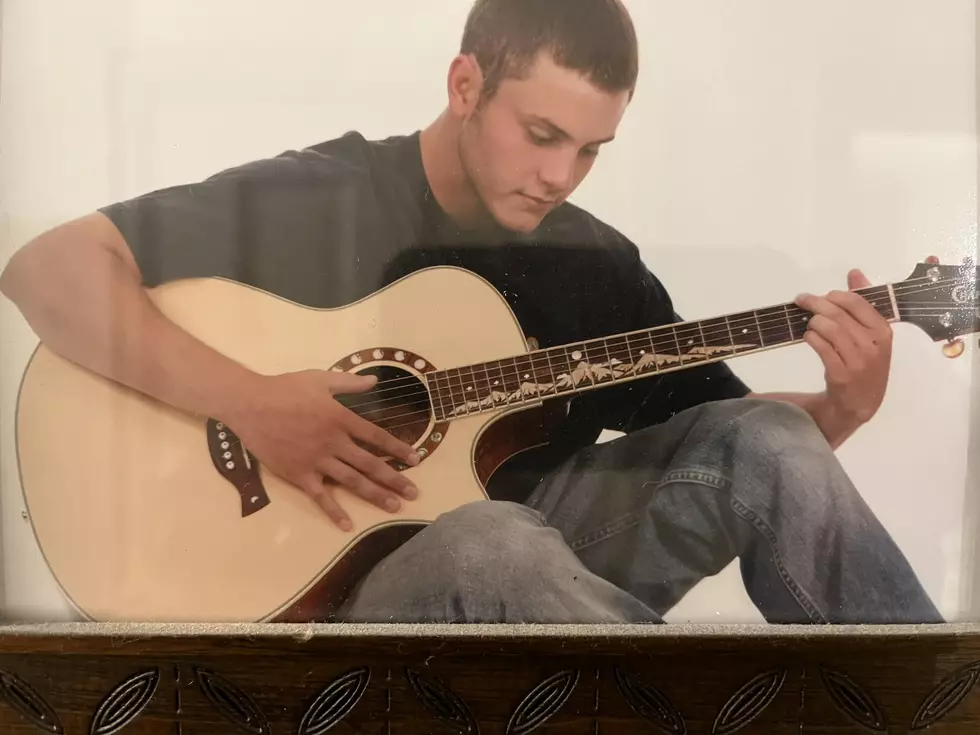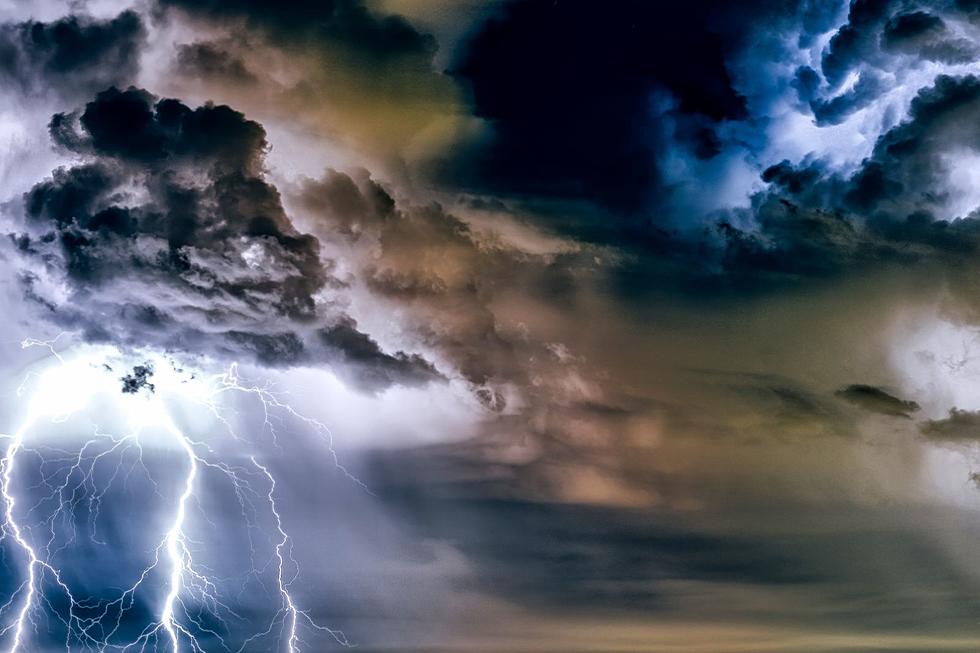
Beckstead Family Hoping to Re-Buy Guitar That Son Sold Before He Died
I was 24 years old the first time I stole my father's ring to pawn it for alcohol money. I wish I could say it was the only thing I pawned. But it wasn't, not by a long shot. There was the ring, the snowboard, the X-Box, the computer, the video camera, and so much more. Some of the items were mine. Many of them weren't. The ring, my dad's ring, was his dad's ring. It sticks out the most. But the other thing that sticks out is the guitar.

My dad bought me a beautiful electric guitar for my 17th birthday. It was the guitar I learned to play on; the one that I wrote songs to my girlfriend on, the one I played in the worship team for church. It was beautiful and it sounded incredible. More than anything, it was a recognition from my dad. It told me that he believed in me. That he loved me.
I sold it for $75 and bought a box of wine.
Because that's what addiction does. It takes precedent. It overrides any feelings of nostalgia. It depletes any semblance of guilt. When you have an addiction, you have to feed the addiction. It's as simple (and yet so complicated) as that.
I've been sober now for almost 8 years. And I've been able to face some of the terrible, heartbreaking things that I did in order to feed my addiction. It's tough to think about. It's even tougher when I remember how much money, and how many memories, were wasted simply so I could get my fix.
Which is why the story of the Beckstead family captured my attention.
On Thursday, Riley Beckstead posted to his Facebook page that his dad was trying to find the guitar that his son, Kelly, had sold.
On December 28, 2022 Kelly died. The guitar, Riley said, had a lot of sentimental value.
"My brother passed away on the 28th," Riley told K2 Radio News. "He died of liver failure because he was an alcoholic and he had a severe addiction to alcohol. Over the course of the last five years, maybe even longer than that, maybe 10 years, he started to sell away all of his goods; all of the things that he owned, that he loved. He started selling all of that because he couldn't maintain a job, and he needed to pay for his addiction."
Because that's what addiction does. It becomes the priority. It prevents you from keeping a job because you're either too drunk or too hungover to do one properly. So you quit. Or you get fired. And you tell yourself, "I'll find something better tomorrow, but tonight, I'm going to drink." And then tonight turns into tomorrow and you tell yourself you'll find a job the next day. And then the next. And the next. Suddenly, it's been a week and you haven't been working and you're running out of vodka.
So you look around your house and you find the most valuable thing you own. You don't sell it; not outright. You pawn it and you tell yourself you'll get it back in a couple of weeks, after you've been working.
But you don't. So then you find the next thing. You pawn that too, at a different store because you're too embarrassed to go to the first one.
"It's just for a little while," you tell yourself. "Just until I can come back with my paycheck (from the job you'll never have)."
You keep going through your things, pawning what you can and selling what you must. You keep telling yourself this is only temporary but, suddenly, you're deep in the hole and there's no way you're going to get out of it.
Finally, you come to the last thing you own. It's the thing you told yourself you'd never part with. It held too much sentimental value; it meant too much.
You give it to the man who gives you cash in return and you don't look him in the eye. You're too ashamed. You don't look at the thing either. You don't need to take one last look, it would only make it hurt more.
But the hurt only lasts until you take that first drink. Then it goes away. You start feeling better.
I don't know if that's exactly what happened with Kelly Beckstead, but I bet it's close.
"He received a guitar from my parents, just before his graduation from high school," Riley said. "And it was one of his most prized possessions. He taught himself to play guitar with that guitar. I don't know exactly when he sold it, or who he sold it to, but my dad decided that he would like to have the guitar back if he possibly could."
So, he asked his children to make a Facebook post.
That's what Riley did and, as of the time of this writing, it's already been shared more than 350 times.
"I think it really speaks to the impact that my father and my family has had on the community," Riley said. "Everybody kind of knows what we've been going through, for multiple years now. And the amount of support that people have been giving us throughout this process - the whole time, much less this last week - has been extremely impressive. And it just makes me feel incredibly fortunate that we have this kind of community and that this many people love us and call us their own."
And all of that is true. Casper takes care of its own, as best as it can. Which is why it's so sad when people like Kelly - young, funny, silly, kind, Kelly - don't recognize it.
Addiction is very isolative. When you've sold everything you own to buy a cheap bottle of whiskey, the last thing you want to do is be around people. The last thing you want to do is believe that anybody cares about you. Who could love you? You barely love yourself. That's how Kelly felt, and it cost him...everything.
"It's sad," Riley said. "It's something that I watched; I watched him lose a lot. I watched him lose his fiance, his kids, his house, and I slowly watched him lose his life over it."
It wasn't on purpose. Kelly probably didn't wake up one day and decide that he wanted to die. But it's like Bukowski says; "Drinking is the slowest form of suicide." You want to reach out, but you reach for the bottle instead, because it's easier that way. You don't have to answer any questions. You don't have to think. You don't have to feel.
And it's hard for the people watching, too. They want to help but they don't know how. And they can't help until the person wants to accept it. The irony is that asking for help is the first and last thing we want to do.
"Ultimately, you realize that no matter what, despite all the mad feelings that you had for this person, and how much you just wanted them to figure it out, they ultimately had a disease that they couldn't control anymore than somebody who has any other form of a terminal disease," Riley offered. "And there's a little bit of solace in that, I guess."
Solace is hard to come by in stories such as these. There isn't really a happy ending. But, the Beckstead family hopes, maybe that they can at least get the guitar back. Maybe they can at least hold onto the thing that Kelly loved more than anything else.
So, the hope is that if somebody is reading this and they have the guitar, that they think about what it means. For them, it's a cool instrument with a fun design. For the Beckstead family, it's an heirloom; a treasure, an irreplaceable reminder of how much they loved their boy.
That love will remain, with or without the guitar. But it'd sure be nice to hear it, just one last time.
"It would mean the world for my dad to get this back," Riley said. "But if you can't part with it, then I hope you treasure it just as much as my dad would, and know the significance that comes with it."
That guitar is a memento. It's a piece of a story about a boy gone too soon. The Beckstead family can hope and pray that they get the guitar back but, even if they don't, they can trust that Kelly has finally found the peace that so many of us struggle to find. Hopefully, Kelly has found that peace. Hopefully he has found that rest. And hopefully, somewhere, he knows how loved he is.
"I love him," Riley said. "I always will. And I'll wear that for the rest of my life."
If you or someone you know has the guitar, you can reach out to Riley Beckstead directly, or you can reach out to K2 Radio News and we will put you in contact with the family.
2022: This Year in Photos
More From K2 Radio








